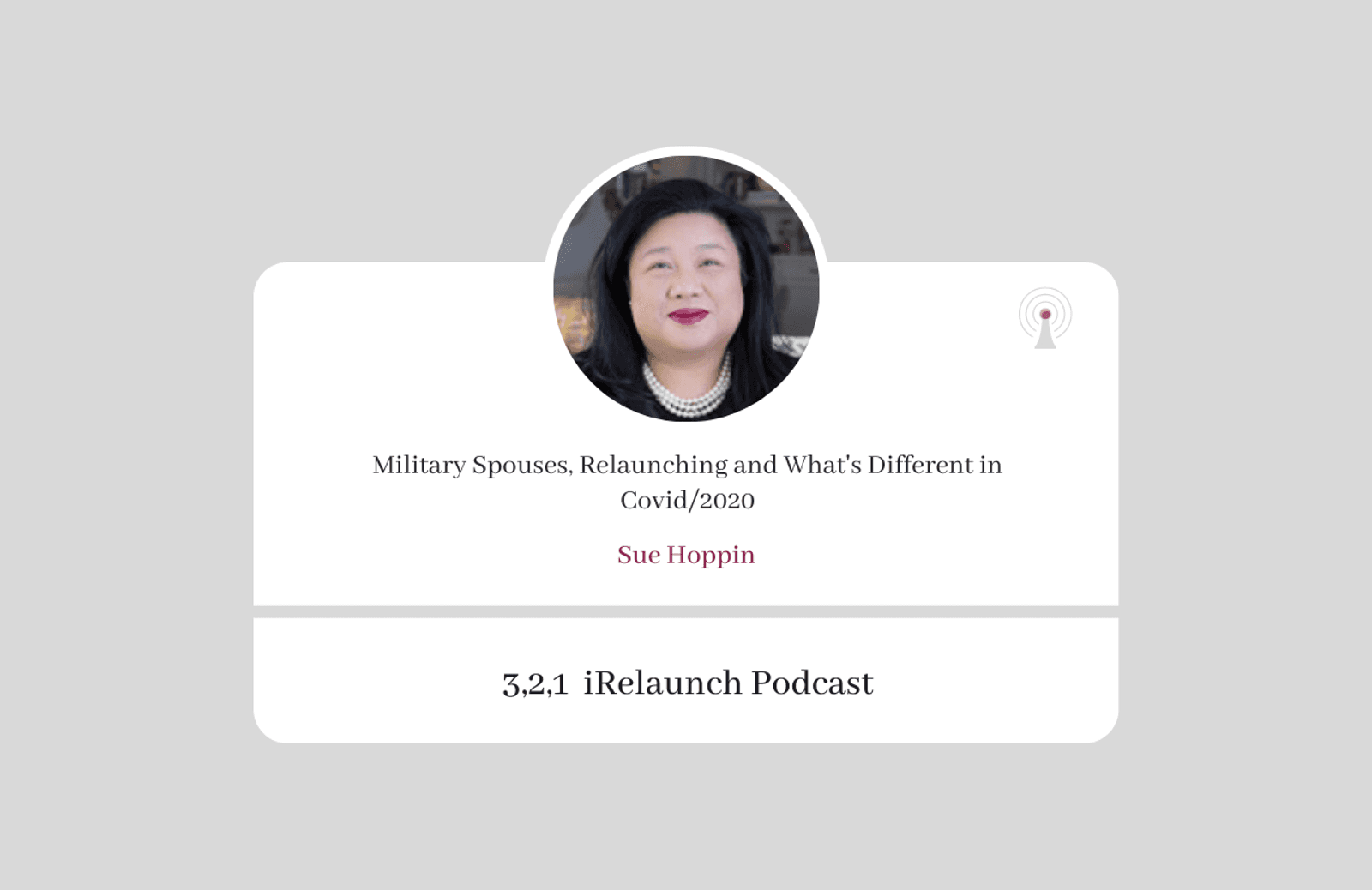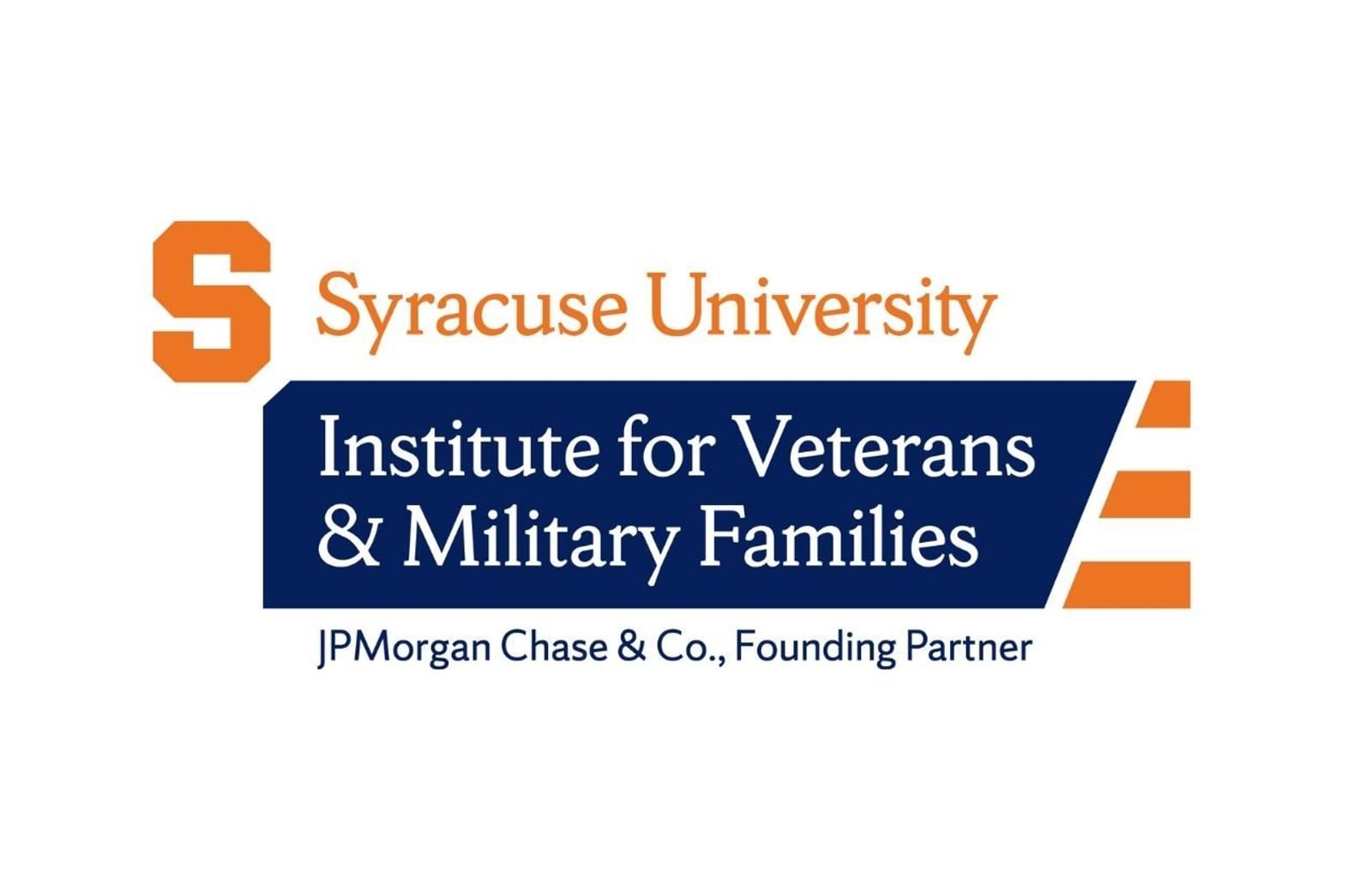We at iRelaunch often point out that relaunchers choose to take career breaks for a myriad of reasons. Many military spouses and partners find themselves faced with crucial career decisions because of the nature of military life. As part of May’s Military Appreciation Month, we asked Sue Hoppin, a nationally recognized expert on military spouse and family issues , to give us a closer look into the career challenges faced by military spouses, why unemployment rates are so high amongst that group, and how advocacy can significantly change the career trajectory for the military spouse community.
When I tell civilians that the military spouse unemployment rate was around 22% pre-pandemic and that some organizations have estimated that it is now over 40%, they’re a bit amazed because all we hear about are the millions of people quitting their jobs and the positions that remain unfilled. I imagine they can’t help themselves; they’re probably wondering: what’s wrong with military spouses? Why can’t they find jobs? Unfortunately, it’s not as simple as one spouse, one job.
Most of the same issues in the civilian world are mirrored in the military community: not enough affordable childcare, lack of opportunities commensurate with educational level and skills, navigating work and caregiving, etc., but they are exacerbated by the military lifestyle. Military spouses are subject to directed moves which means they’re starting over every 18 – 36 months. Some employers are not willing to take a chance on a very transient demographic. Service members are regularly away on temporary duty (TDYs) or deployments (that can last up to a year), so the family dynamic is ever evolving. Moving frequently also ensures that military spouses likely do not have a robust network in place at most duty stations which leaves them with no way of tapping into the hidden job market. And this is just the tip of the iceberg. Working in the space, caring about the issues and the belief that I could do something to help is how I found myself becoming an accidental advocate.
Even though millions of dollars have been spent to address the issue and countless programs have been implemented, the military spouse unemployment rate remains stubbornly high. Four years ago, when we at NMSN authored and released our first white paper, there was a lot of good research and information out there about military spouse unemployment, but not a lot of good, actionable policy recommendations or organized advocacy efforts solely focused around military spouse employment. This was a gap. We knew that no real change was going to occur without some advocacy and policy changes. We needed to make it easier for policymakers to help our community by not just identifying the problems, but also the solutions. Our advocacy on the WOTC is an example of this.
Since our first National Military Spouse Network (NMSN) White Paper was released in 2019, we have called for the expansion of the Work Opportunity Tax Credit (WOTC) to include military spouses as a target group. The WOTC is a tax credit meant to incentivize businesses to hire individuals in designated groups, including qualified veterans, ex-felons, summer youth employees, and more. The IRS finds that these groups share one thing in common: they have “consistently faced significant barriers to employment.” Using this definition, it’s obvious that the target group should be expanded to include military spouses, whose current unemployment rates currently stand at 10 – 11 times higher than the national average.
We were fortunate to have found allies on Capitol Hill who also believed that this could be an important tool to address and reduce military spouse unemployment. Through the leadership of bi-partisan congressional leaders, Representatives Antonio Delgado (D-NY), Donald Beyer (D-VA), Jimmy Panetta (D-CA), Don Bacon (R-NE), Mike Kelly (R-PA), and Cathy McMorris-Rodgers (R-WA), H.R. 2912 was introduced in the 116th
Congress. The need for such legislation was underscored by the military spouses who joined us for our first NMSN Annual Day of Advocacy and took their stories to Capitol Hill, sharing the challenges and recommendations for tackling military spouse unemployment. Our voices were heard! By the end of the 116th
Congress, H.R. 2912 had picked up 58 bi-partisan co-sponsors – but our work was not done. Not even a pandemic could slow us down.
Once again, it was the voices of military spouses joining with NMSN from around the globe to advocate virtually that kept attention on the issues. In the 117th Congress, Representatives Delgado, Beyer, Panetta, Bacon, Kelly, and McMorris-Rodgers once again affirmed their commitment to military spouses by re-introducing the WOTC expansion legislation, H.R. 2974. Since then, the bill has gained incredible momentum and garnered 126 bi-partisan co-sponsors. Again, this was due in large part to the military spouses who joined us to take their cases directly to their legislators.
Because it’s always best to work in a bi-partisan, bi-cameral manner, we had hoped for a Senate companion to the House bill in both the 116th and 117th Congresses. While that didn’t happen right away, we are so pleased to share that the Senate has now introduced companion bill S.3909 to H.R. 2974! This means that both chambers are currently working in concert with one another on ONE WOTC expansion bill to champion. Exciting news all around! We’re a long way from being done, but the finish line feels like it’s in our sights.
Over the past four years of releasing white papers and effectively advocating for change, we have learned some lessons and best practices:
- First up, talking about a problem is fine, but it’s not going to solve anything. Change does not occur without advocacy.
As a military spouse of an active-duty member at the time and an active job seeker, I was so sick of hearing that military spouses were unemployed at an astronomical rate and that those who were fortunate enough to have found a job were most likely underemployed. We get it. We know what the problem is. But our response is, what is going to be done about it?!!? It was frustrating. We at NMSN knew we could do better and that things were not going to change if our community did not actively advocate for that change.
- It’s not enough to identify a problem, you need to also need to articulate a solution.
Policymakers want to help, but they need you to tell them how they can help. Don’t leave it up to them to come up with a solution. If you are getting in front of policymakers to share your challenges around specific problems, do the work of figuring out a possible solution. While they may not implement your solution, it gives them a starting point
- Passion is great, but unless you find a way to tell your story succinctly and in a relevant manner, you’re missing the opportunity to connect with potential allies.
Policymakers and their staff are not subject matter experts on every topic, so they will rely on you to get them up to speed. If you’re granted a 30-minute office visit with a legislator or other stakeholder, only 5 minutes of that time (or less) should be dedicated to telling your story. If you want to engage effectively, learn to tell your story quickly, connect it to the problem, then move on to the solution. Be ready to answer questions and dialogue. Make the most of your time and set them up for success.
- You cannot care more about the problem or be more invested than the population you serve.
A White Paper is a great start, but every year, we have military spouses and allies join us from around the globe for a Day of Advocacy. They take their stories directly to Capitol Hill (both in person and virtually) and engage with their legislators. This has proven to be very effective. NMSN could not do what we do without the professional military spouse community that we serve because Congressional members want to hear from their constituents. And when less than 1% of the population serves our country in a military capacity, it’s important to remind Congress that military spouses are voters, and they care about these issues. We’ve witnessed the results of giving a community an opportunity to get involved and help. You can’t be successful without them.
- Advocacy is a long and thankless endeavor, but it is the only way we know of to accelerate the change we want to see in the world.
The FY22 National Defense Authorization Act (NDAA) that was signed into law included a provision for a military spouse employment study that we advocated for since 2019. And we considered that a great win.
The WOTC legislation didn’t get passed in the 116th Congress when it was first introduced, so we had to work to get it re-introduced in the 117th
and essentially start the process all over again. Advocacy takes time and commitment, and it is thankless. You’re working on behalf of a community that will never know how hard you worked on their behalf, but there is no better feeling than knowing you are making a difference.
Even though the advocacy work that Sue and NMSN are engaged in is specific to the military spouse community, the lessons and insight shared are applicable to any community for whom you want to affect change. Advocacy does not necessarily need to happen at the legislative level; iRelaunch has seen great improvement through the years in our mission of normalizing career breaks and that work has been done through advocating for the relauncher talent pool with employers and stakeholders. As Sue so eloquently states, if you identify a problem that affects a community, then you should work with the people affected to identify a solution and advocate for that change with the involvement of those who care as much or more about it than you do. And remember that the work you're doing may be long and thankless, but your efforts may be the only way positive change happens.





